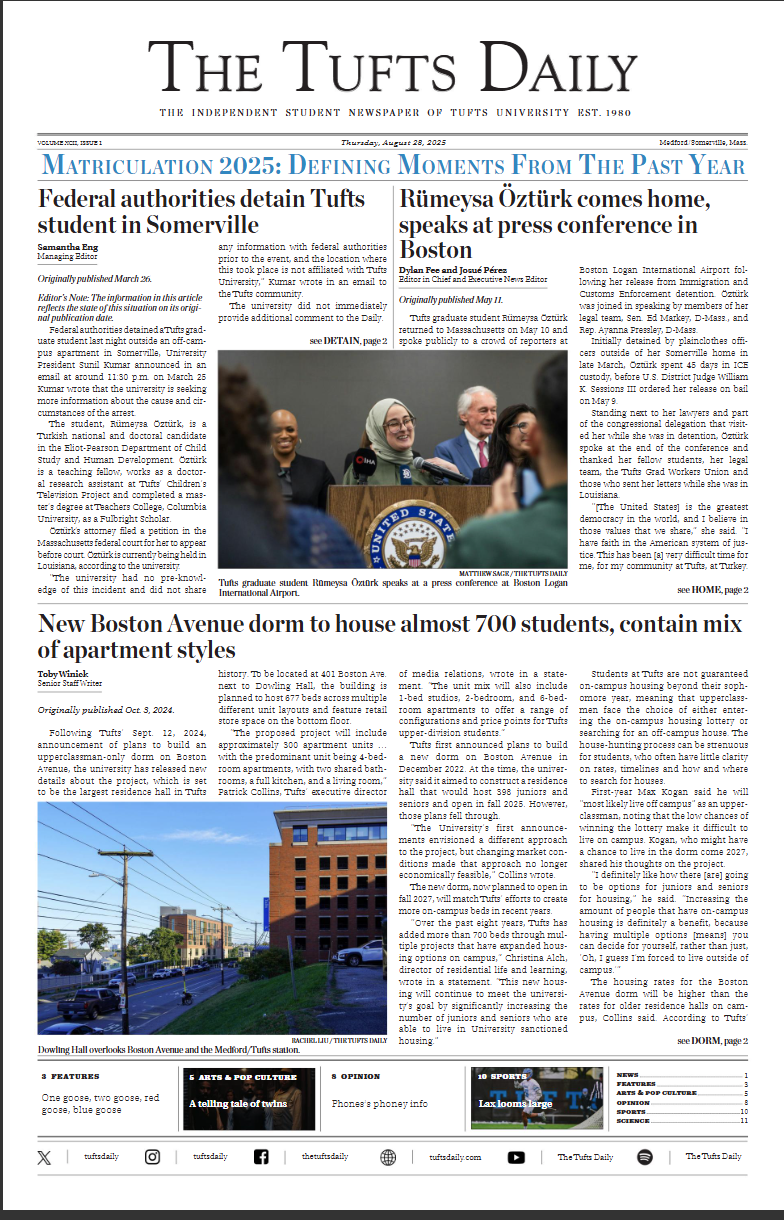As the nation's largest employer, and with retail stores littered across the world, Wal-Mart has a responsibility to be a model corporate citizen. But in trying to help the consumer by providing the lowest price possible, Wal-Mart is sacrificing the well-being of its workers - the very low wage employees who would benefit the most from reduced prices.
The company's reputation as an inhumane employer has at last taken over the cost-cutting smiley face as the image of Wal-Mart. And after years of criticism, Wal-Mart has taken important steps in the past week to improve its profile as a company. But in order for the company to remain both popular and profitable, it must make significant changes to corporate policy.
The announcement of a new post - director of global ethics - is only the beginning of the many reforms that are necessary. The company describes this position as an overseer of the enforcement of the employee code of conduct. The individual holding it is charged with eliminating worker and management transgressions.
While this is a step in the right direction, it does not address many of the concerns that have been voiced over Wal-Mart policy. Though incidents such as last year's pilfering of company money by a top executive may be reduced with improved internal controls, issues such as worker treatment are still ignored.
Wal-Mart's business model relies on mass production, and can only achieve the returns it does thanks to economies of scale. In instances such as this, workers and low-level employees are often put on the fringe of company policy. Improvements in ethics must be made throughout, not just by plugging the most recent leak.
Good corporate governance must take into account all of the stakeholders in a company. The thousands of cashiers and shelf-stockers play an integral role in the retailer's success. By improving its work environment, compensation plans and benefits, Wal-Mart may lose some competitive edge, but ultimately the company and the economy will function better.
By under-funding its low-income workers' healthcare and other benefits, Wal-Mart places a burden on the American taxpayer: Ultimately, the customer who receives a low price at the register ends up paying the full cost of the good through taxes. Though this type of indirect cost seems attractive to the ignorant consumer, it results in an inefficient economy.
If Wal-Mart is willing to cede enough power to the global director of ethics, the possibilities for improvement are enormous. Not only will the company benefit from better employee relations, but the company will succeed in improving public relations. Many of Wal-Mart's expansion plans have been grounded because of local resistance. Small business owners object to both the company's cutthroat competitive practices and its reputation for destroying towns. With an improved image, Wal-Mart can work towards bettering community relations while remaining profitable.
This sort of self- regulation through greater internal controls is the most effective way for companies to practice ethical business. Corporations will do far better to enact legitimate governance principles on their own accord then to allow for government intervention.
These measures, however, must be strong enough to prevent further transgressions. Capitalism is the best method for harnessing human greed for the greater good, and the company which succeeds in ethically channeling its profit motive will reap momentous rewards.





